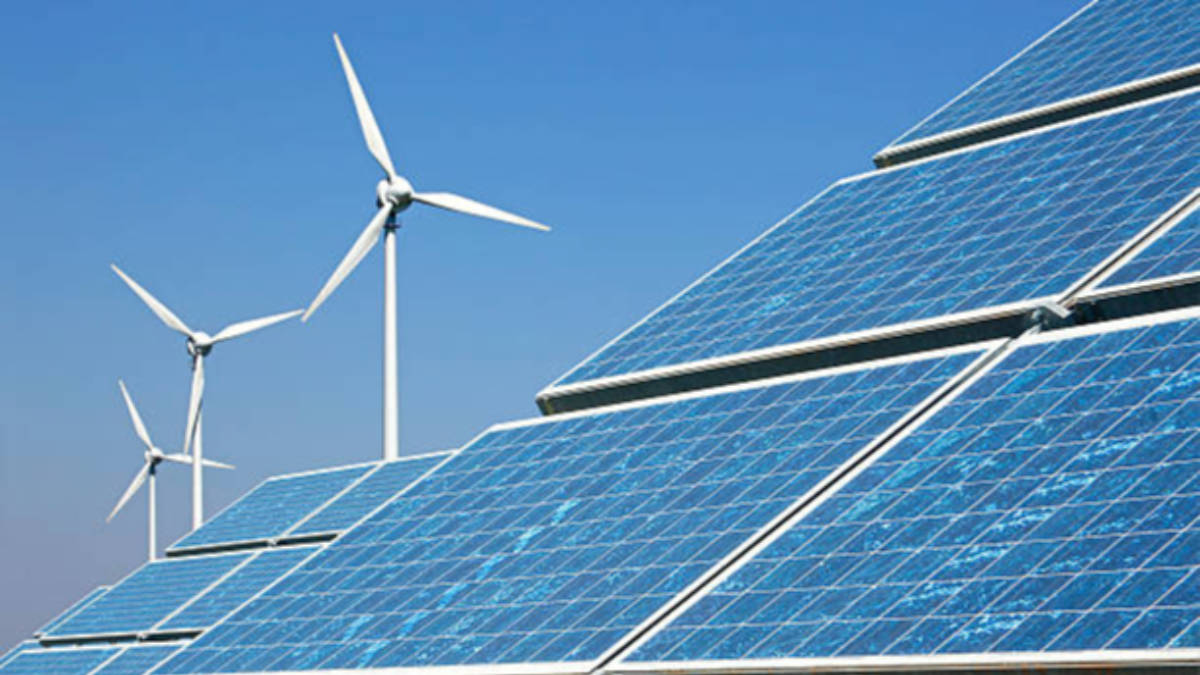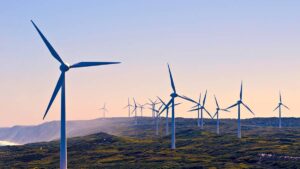POWER UP: Is this really the start of Australia’s pivot towards renewables?

Renewables could be leading the charge. Pic: P. Steeger via Getty Images
While Australia has arguably already made some big steps down the path toward achieving net zero, Prime Minister Anthony Albanese’s declaration to the UN about our emissions goals is perhaps the first concrete move in this direction – and renewables are likely to play a big part.
And it is not just committing to reducing emissions by 43% by 2030.
Energy Minister Chris Bowen has (rather heatedly) dismissed suggestions that prolonging coal-fired power is the answer to the energy crisis, saying that rapid investment renewable energy and storage was the key.
The Australian Energy Market Operator’s move to suspend the spot electricity market in the eastern states could also be a signal that regulators and the government have run out of patience with the fossil fuel power generators.
While the suspensions were blamed on planned and unexpected coal power station outages, scheduled transmission outages, the early onset of winter, and periods of low wind and solar output, comments from the government have suggested that the action was also due to generators withdrawing capacity.
New South Wales energy minister Matt Kean said the decision would “prevent energy companies from putting energy reliability at risk by unnecessarily withdrawing supply”, with Bowen mirroring his comments.
Labor’s new stronghold in the West has also committed to ending coal power by 2030 with a clear model to manage the transition that has Greenpeace telling fellow Stockhead energy writer Jessica Cummins that it was a good model that could be used for gas.
Even major energy companies are getting into the game with BP finally confirming that it will be taking up more than 40% of the giant Asian Renewable Energy Hub project to produce and export green hydrogen in Australia.
Opposition sticking to its guns on gas
And the contrast with the Opposition could not be any starker with its treasury spokesman Angus Taylor seemingly thinking that he’s still responsible for energy, saying that the country still needs gas for dispatchable generation.
He’s not entirely wrong, we do need gas power at this time to ensure that the lights and heating (yes please!) stay on at night. But that’s exactly why investment in energy storage – be it lithium-ion batteries, vanadium redox flow batteries, green hydrogen or pumped hydro – is required.
Opposition leader Peter Dutton pointing the blame for the crisis on Bowen and saying that these were pre-existing issues is also a bit rich given that the Labor government has only been in power for three weeks. There is every reason to believe that the same thing would have happened (with more calls for a gas-fired recovery) if the Liberals had won.
Audentes fortuna iuvat (fortune favours the bold), and it is easy to be bold when you’re not in power.
You can’t please everyone on renewables
Despite this shift towards renewables, the old adage that you can’t please everyone still rings true.
The Climate Council described the Albanese Government’s move as a significant step from the last Federal Government’s “woeful do-nothing approach” but was also quick to say that emissions targets had to be higher and achieved earlier.
Despite this, there is broad consensus that the new government’s policies are likely to drive greater adoption of renewable energy and energy storage.
Related Topics
UNLOCK INSIGHTS
Discover the untold stories of emerging ASX stocks.
Daily news and expert analysis, it's free to subscribe.
By proceeding, you confirm you understand that we handle personal information in accordance with our Privacy Policy.








